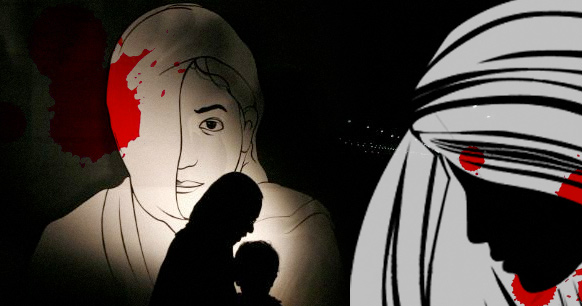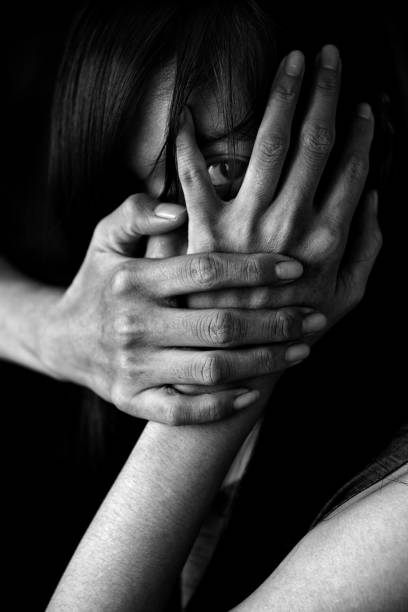
Rape is a gruesome crime that violates the privacy, integrity and dignity of a female. Getting past this barbaric act is a great deal in itself, however, the victim has other hurdles ahead. The obstacles are a set of notions, expectations and perspectives embedded in the society, which collectively forms, what is now called ‘rape culture’. The term might be used often these days; but victim-blaming, patriarchy, gender roles/gender insensitivity and the neglect of women’s rights over extensive periods of time have normalized this culture. It is further perpetuated by misogynistic language, sexual objectification of women’s bodies and the normalization of sexual violence which results in the complete disregard of women’s rights. From movies to discourse on rape aimed at character assassination of the victim, our daily conversations and experiences are testimony to the existence of this toxic environment.
For far too long, the ‘rape culture’ has been used as a tool to relegate women to second-class citizens, over whom men can exercise their power and control, and in so doing, strip them of their rights to equality, human dignity and bodily integrity.
Rape and Rape Culture
When a rape occurs, it not only violates the victim’s privacy but inevitably also causes serious psychological as well as physical harm in the process. It is not merely an assault, it is often destructive of the whole personality of the victim. The murderer destroys the physical body of his victim, whereas, a rapist degrades the soul of the female.
For years, rape was viewed as an act of sexual intercourse but this primitive viewpoint has undergone significant evolution. The Criminal Law Amendment Act (2013) widened the scope of rape under section 375 of the Indian Penal Code and included more offences violating the privacy of a female’s body than just sexual intercourse. The Criminal Law Amendment Act of 2018 further added sexual harassment, stalking, voyeurism and disrobing a female’s clothes under the list of offences in the Indian Penal Code, 1860. However, this evolution of the law is only regarding the physical aspect of rape. Have we as a society evolved mentally?

The victim faces humiliation at all stages of the trial within the court and outside the court due to the stigma attached to rape in society. The society is more concerned about how she is going to get married now because who is going to take care of her knowing she has been violated! The conversation does not revolve around the victim’s physical or mental health and further isolates her. The law and the procedures adopted by the Court are aimed at being victim-friendly but the process is not bereft of prejudice and discrimination. Irrelevant considerations like the victim’s outfit, her sobriety and her past sexual relationships form the crux of the entire case.
Furthermore, owing to the pandora’s box of myths viz. the rape culture, the victim is not only expected to have injuries on her body but also inflict damage on the accused in the course of the alleged crime. There have been several precedents which concur to the rape myths listed above with the most recent one delivered by the Karnataka High Court. While delivering the bail order, the Judge stated that it is ‘unbecoming of an Indian woman to sleep after she has been ravished‘. By delving into the merits of the case while deciding the bail application, the judge not only ignored the due process but put his patriarchal narrative in front of the legal fraternity and public at large. After receiving severe flak from several activists, the remark was expunged.
Now, let’s just analyse all of this from a woman’s perspective. When a rape occurs, it sends a shockwave of fear, terror and insecurity to all the women. Furthermore, such remarks by eminent personalities are degrading and limit the behaviour of women in our society, thereby, pushing them to a subordinate position and expecting them to behave in a certain acceptable way (firstly, to prevent rape and secondly, to convince the court that her consent has indeed been flouted).
Putting an end to it
The fourth virtue that is set out in the preamble of our constitution is a fraternity which means a sense of brotherhood and attachment among all citizens of the country. More importantly, this virtue is meant to assure the dignity of the individual and maintain the unity and integrity of the nation. Furthermore, it is our fundamental duty under Article 51-A to not only abide by the Constitution but also to promote the spirit of harmony and brotherhood amongst all the people of India and renounce any practices that are derogatory to women. By allowing the rape culture to plague our society, we have ignored our fundamental duties and disrespected our Constitutional principles. However, it is time to realize that putting an end to it is not only in the interest of societal morality but in the larger interest of constitutional morality.
- Understand and Educate
Notions that were relevant ages back are not necessarily relevant in the 21st century. Even laws have been held unconstitutional if they have not stood the test of time. Therefore, as a society, we ought to accept and understand how problematic and degrading the myths attached to rape are. Once we learn about the same, it is our duty to actively educate people who unknowingly pass offensive jokes or derogatory comments on rape. It is our collective responsibility as per the Constitution to prevent the propagation of this patriarchal narrative by showing zero tolerance to rape and the myths attached to it. - Break Stereotypes
Patriarchy believes men to act in a dominant role and indirectly relegates women to a subordinate position. The fear of being considered ‘weak’ is one of the reasons why boys who are raped or sexually abused, do not speak up. Our gender does not define everything about us. Our choices, beliefs and life at large need not and should not be based on our gender. The pressure on boys and men to be sexually active is the venom that has descended from the patriarchal narrative. Consent is to be active and enthusiastic and it is the duty of both men and women to communicate and have conversations regarding their comfort levels. Therefore, by breaking stereotypes, maybe one does not necessarily adhere to the strict standards of ‘masculinity’, but one definitely goes on to become a better human. - Stop Victim Blaming
The most prominent way to allow a victim to recoup from the violation of her rights is to stop blaming her for the rape. As language is so deeply entrenched in our culture, the words and remarks we often make, perpetuate the rape culture unbeknownst to us. Even our fundamental freedom of speech and expression under Article 19 of the Constitution is subject to morality. The mental and physical health of the victims of sexual abuse already takes a toll due to the incident. By being inconsiderate to the victim, we are punishing a victim for a crime she did not even commit! Therefore, it is time for us to understand that it is highly insensitive to blame the victim for the crime committed by the mentally disturbed culprit.
Every day we have the opportunity to examine our behaviour, language and beliefs for biases and prejudices that permit rape culture to continue. From the attitudes we have about gender identities, to the policies and laws we support in our society, it is necessary to take consolidated action to stand against rape culture.
Editor’s Note
This article is an attempt at an analysis of the society’s misogynistic mindset (shaped by modern anxieties, economic, social and political motives) which is also known as ‘rape culture‘, and how far it is entrenched into the culture of the Indian society. As is evident by the various scientific, psychological and statistical studies conducted over time, rape is not the kind of event that occurs in individuality and it is never the first step. No one is born a rapist and there is always a process that leads to the making of a rapist. The justice system in this country must recognize that capital punishment alone would not be able to manage the process behind the birth of a rapist. The ways in which we, as a society, can play several important roles in recognizing and curbing the factors which perform an unnoticed yet important role in the growth of rape culture in India have been discussed extensively in the present article.